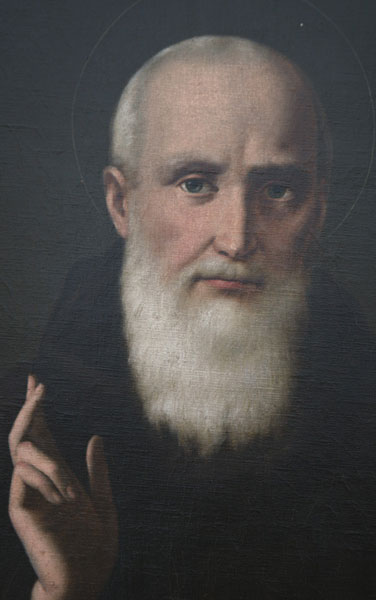Podcast: Play in new window | Download (Duration: 30:44 — 21.1MB) | Embed
Subscribe: Apple Podcasts | Spotify | Amazon Music | Android | Pandora | iHeartRadio | JioSaavn | Podchaser | Gaana | Podcast Index | Email | TuneIn | Deezer | Anghami | RSS | More

“The Life of St. Benedict pt 2”
We continue our conversation on the life of St. Benedict by using the biography penned by St. Gregory the Great. In this episode, St. Benedict is visited by a priest on Easter Sunday morning in the cave and is called from his seclusion.
From the Life of Our Most Holy Father St. Benedict by St. Gregory the Great:

Now when it pleased Almighty God that Romanus should rest from his labors and that the life of Benedict should be manifest to the world for an example to all men, that the candle set upon a candlestick might shine and give light to the whole Church of God, our Lord vouchsafed to appear to a certain Priest living far off, who had to make ready his dinner for Easter Day, saying to him: “Thou hast prepared good cheer for thyself, and My servant in such a place is famished for hunger.” Who presently rose, and on the solemn day of Easter went towards the place with such meat as he had provided for himself, were seeking the man of God, amongst craggy rocks, winding valleys and hollow pits he found him hid in a cave. Then after prayers, and blessing the Almighty Lord, they sat down, and after some spiritual discourse, the Priest said: “Rise, and let us take our refection, for this is Easter Day.” To whom the man of God answered: “I know it is Easter because I have found so much favor as to see thee.” (For not having a long time conversed with men, he did not know it was Easter Day.) The good Priest did therefore again affirm it, saying: “Truly this is the day of our Lord’s Resurrection, and therefore it is not fit that you should keep abstinence, and for this cause I am sent that we may eat together that which Almighty God hath bestowed on us.” Whereupon blessing God, they fell to their meat. Their discourse and dinner ended; the Priest returned to his Church.
Father Mauritius Wilde, OSB, Ph.D., did his philosophical, theological, and doctoral studies in Europe. He is the author of several books and directs retreats regularly. He serves as Prior at Sant’Anselmo in Rome. For more information about the ministry of the Missionary Benedictines of Christ the King Priory in Schuyler, Ne

